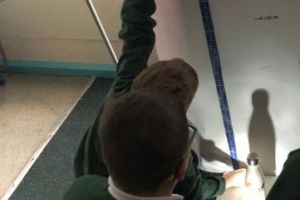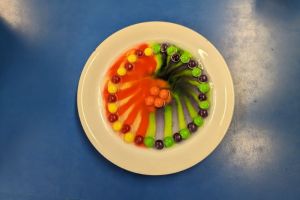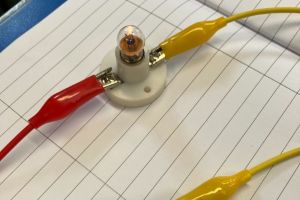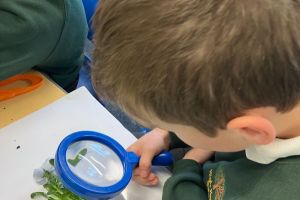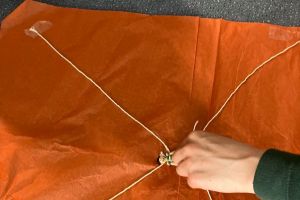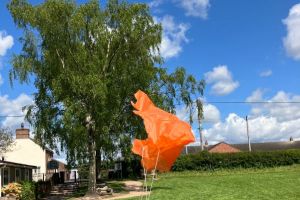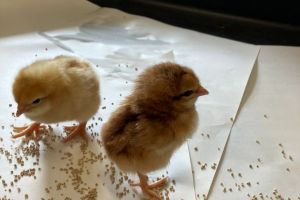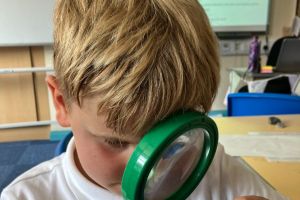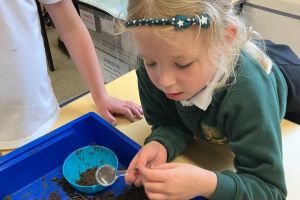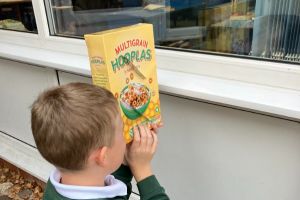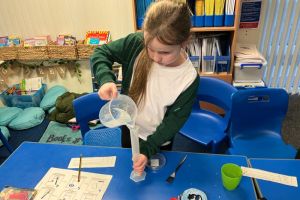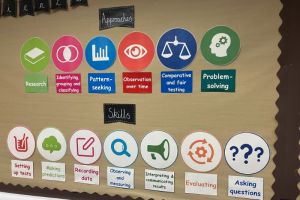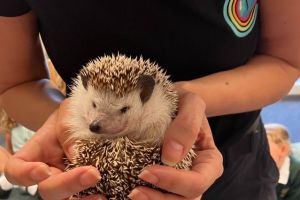Science
What are we aiming for?
At High Hesket CE School we aim to foster and develop our pupils’ curiosity in science and to prepare them for life in an increasingly scientific and technological world. Science learning is planned through systematic investigations of the physical, chemical and biological aspects of their lives to give all children a strong understanding of the world around them whilst acquiring specific skills and knowledge to help them to think scientifically, to gain an understanding of scientific processes and to understand the uses and implications of Science, today and for the future.
The skills of working scientifically are embedded in each unit of learning encompassing biology, chemistry and physics through an enquiry approach. The children will investigate, following lines of enquiry through observing over time; pattern seeking; identifying, classifying and grouping; comparative and fair testing (controlled investigations); and researching using secondary sources. The children will have opportunities to seek answers to questions through collecting, analysing and presenting data.
Science learning is planned into units, focussing on the different aspects of biology, physics and chemistry. Learning that is introduced in one key stage or phase is often re-visited and built on in a later phase of learning. Our progression in science document supports teachers in ensuring learning is pitched correctly and developed consistently, building on previous learning. Our dual focussed connect/stretch/transfer approach to planning, teaching and learning science allows us to introduce key skills and knowledge, stretch the children’s ability to investigate to secure knowledge and transfer this learning through designing their own enquiries and hypothesis. Children use identified learning behaviours to enable them to gain knowledge and investigate key concepts. Learning experiences are vocabulary rich and it is expected that children use scientific vocabulary readily, explaining what they are learning with reasons why. A CIDIO approach is used to enable the children to experience science in their immediate environment and beyond.
How do we get there?
In the downloads section below you will find the progression of skills and vocabulary for science. These documents show how science develops as the children move through the school.
We teach science in units across a half term, each unit linking to biology, chemistry or physics. Through all science learning the children work scientifically. They explore science through different types of investigations, which they grow to recognise as they move through school and their experience of them develops. They undertake investigations which allow them to:
- seek patterns
- research topics and ideas
- carry out comparative tests/fair tests
- complete observations over time
- identify, group and classify
- problem solve
As scientists, the children learn to use skills to help them conduct their investigations. These are:
- asking questions
- making predictions
- setting up tests
- observing and measuring
- recording data
- interpreting and communicating results
- evaluating


 Science progression of skills
Science progression of skills